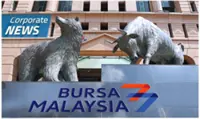BEIJING: China’s banks are being offered cash and given instructions to boost lending, adding to evidence of a shift toward greater official support for the economy.
The banking and insurance regulator has asked financial institutions to “earnestly implement” plans to help reduce financing costs for small firms, saying big lenders should “take the lead,” according to a statement posted on its website.
Meanwhile, the People’s Bank of China plans to use its Medium-term Lending Facility to encourage bank loans and investment in lower-rated corporate debt, according to China Business News.
New credit as a percentage of GDP declined close to a three-year low in June, a Bloomberg Economics gauge shows, as a government-driven campaign to reduce financial risk coincides with weaker output.
New data on Monday showed second-quarter growth slowed and factory activity cooled more than expected, heightening attention on any government plans to mitigate the effects of the escalating trade war.
“We have seen strong indications that Beijing could be shifting from mere policy-easing measures to a new round of stimulus to avert a credit squeeze and economic growth slowdown,” Lu Ting, chief China economist at Nomura International Ltd. in Hong Kong, wrote in a report.
The PBOC will provide commercial banks with the same amount of MLF funds for the portion of their lending exceeding the monthly loan quota and for investment in corporate bonds rated AA+ and above, according to the report. It said banks will receive double the amount of MLF loans for investment in corporate bonds rated below AA+.
“The latest policies are indicating an easing bias, bringing additional pressure to the yuan,” said Zhou Hao, senior emerging market economist at Commerzbank AG in Singapore.
“It also helps to confirm that the Chinese economy is facing a slowdown. If the PBOC doesn’t intervene heavily, there will be further downside.”
The offshore yuan was the weakest Asian currency versus the dollar in Thursday trading, falling as much as 0.6 percent to 6.7867, the lowest in a year.
The cost of one-year interest-rate swaps, a gauge of expected funding costs, declined five basis points to 2.79 percent, the lowest since November 2016.
China this month recorded one of its biggest corporate-debt defaults yet, with the downfall of a coal miner that had ridden the country’s wave of credit until policy makers launched their deleveraging campaign.
Officials in the finance ministry and central bank are debating who should take the lead on increasing support as growth slows, stocks fall and the currency weakens. Any shift in the PBOC’s “prudent and neutral” stance would require a sign-off from higher up in the government.
While some investors have been looking to the Communist Party’s top ruling body to offer guidance on the policy shift, a report from Goldman Sachs Group Inc. said new policy measures could come before the politburo’s mid-year economic gathering. That meeting will probably take place around the end of July.
“The government was likely surprised by the timing of the $200 billion tariff announcement by the U.S. and it’s taking time to come up with a concrete response,” Goldman Sachs economists Song Yu and MK Tang wrote in a report.
They said off-balance-sheet lending has become a “bigger drag” in aggregate financing, offsetting some of the effects of last month’s loosening measures.
China has seen the biggest net monthly drop on record in its shadow banking sector in June, according to Bloomberg calculations based on the central bank’s data, weighing on the supply of new credit to the real economy.
“Chinese policy makers are increasingly turning toward an easing bias and refraining from deleveraging,” said Tommy Xie, economist at Oversea-Chinese Banking Corp. in Singapore.
“The PBOC wants to support credit growth to make sure the economy doesn’t see a sudden drop in the second half, given the slowdown of total social financing, if it continues, is due to have an impact on growth.”
The PBOC’s financial research institute director Sun Guofeng has indicated room to ease credit policy in an earlier interview.
The central bank didn’t respond to a fax sent Thursday seeking comment on the reports.
Regulators are working to “restore credit expansion with incentives” and they want to prevent a shadow banking contraction from weighing on corporate financing, said Wang Yifeng, a researcher at China Minsheng Bank in Beijing, adding the banking regulator’s statement may signal “a complete policy shift.” - Bloomberg





